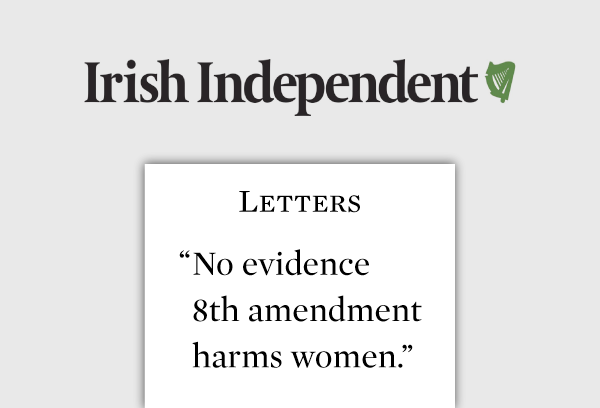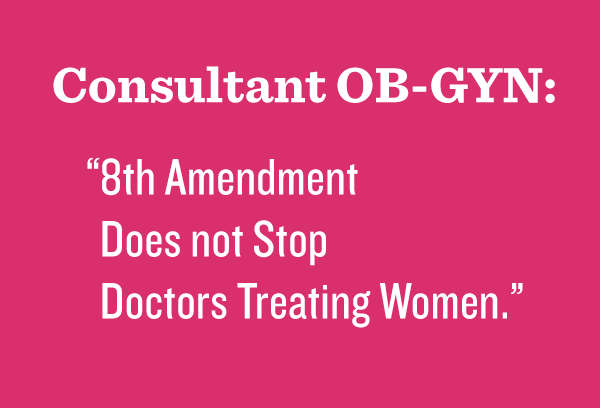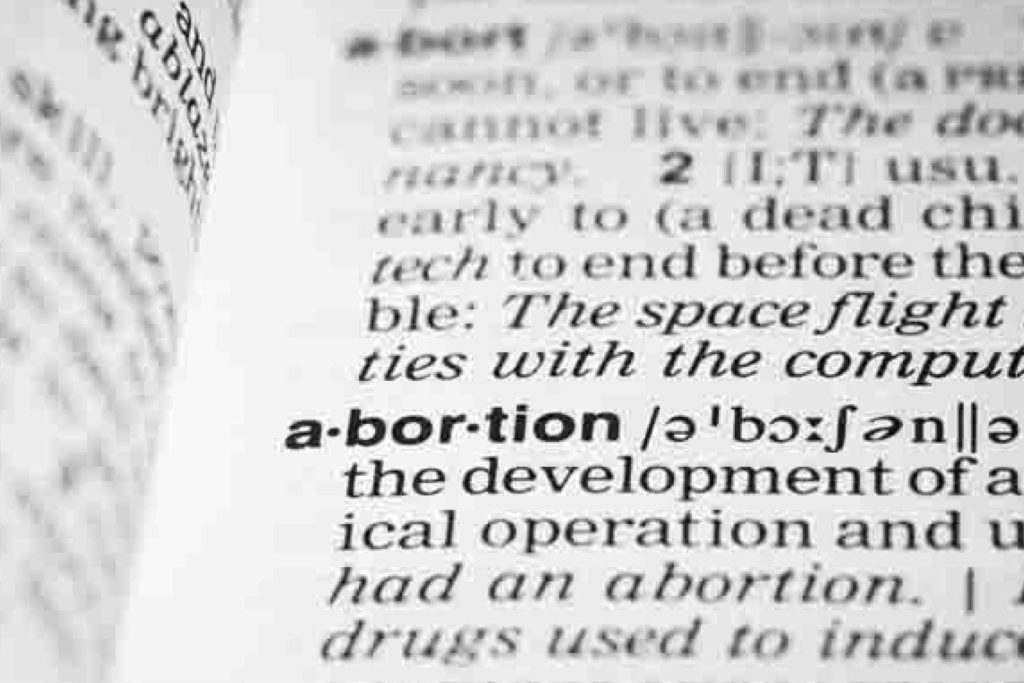
The last few weeks have seen a massive increase in the number of false stories and misrepresentation regarding women not receiving proper care whilst pregnant, and in some cases dying from that lack of care, coming from the pro-choice side. These stories are not true, as two letters, written by prominent obstetricians to the Irish Independent this week, lay out. Both letters can be read in full at the link below.
The last few weeks have seen a massive increase in the number of false stories and misrepresentation regarding women not receiving proper care whilst pregnant, and in some cases dying from that lack of care, coming from the pro-choice side. These stories are not true, as two letters, written by prominent obstetricians to the Irish Independent this week, lay out. Both letters can be read in full at the link below.
<>No evidence 8th amendment harms women
I am concerned about misinformation being circulated in the media in respect of an alleged contribution of the Eighth Amendment to maternal mortality and morbidity in Ireland. An audit of maternal mortality and severe morbidity in Ireland has been ongoing for some years, and is an important measure of quality of care in maternity services.
MDE Ireland has been collecting data on maternal deaths in Ireland since 2009, and is a collaboration with the long-established UK-based Confidential Enquiry into Maternal Deaths, considered worldwide as the gold standard for audit of such deaths.
All maternal deaths are reported to the office based at Cork University Maternity Hospital. Definitions and methodology are identical to that used in the UK, and every anonymised case is subject to detailed review by independent medical and midwifery assessors.
Since its inception in 2009, MDE Ireland has produced regular reports, most recently in December 2017. In our experience, the maternal mortality rate in Ireland has not been statistically significantly different from the UK.
The rate for the triennium 2013-15 was 6.5 per 100,000 maternities, compared with 8.76 per 100,000 maternities for the UK.
Severe maternal morbidity is also acknowledged internationally as an important quality indicator of obstetric care and maternal welfare, particularly in developed countries where maternal death rates are relatively low. Data for Ireland has been collected and subjected to anonymised analysis by the National Perinatal Epidemiology Centre since 2011, and annual reports have been published.
Using the validated methodology of the Scottish Confidential Audit of Severe Maternal Morbidity to facilitate international comparison, Irish rates compare favourably with published Scottish data.
It is important to state that none of the consecutive reports published by these two national audits of obstetric practice raises any concerns in relation to the Eighth Amendment. The conclusion is obvious – there is no evidence whatever of a higher risk of maternal mortality or severe morbidity in Ireland as a result of the Eighth Amendment.
All reports to which I refer are available on the www.ucc.ie website.
Dr Michael F O’Hare, MD FRCPI FRCOG Consultant Obstetrician and Gynaecologist. Chairman, Joint Institute of Obstetricians & Gynaecologists/HSE Working Group on Maternal Mortality.
8th does not impede care of pregnant women
I am concerned that recent statements are causing unnecessary fears for women. They suggest that obstetricians are curtailed in their ability to care for pregnant patients who are seriously ill.
Across the world, only a tiny proportion of terminations of pregnancy are related to obstetrical care. Ireland’s law fully provides for the small number of cases relating to necessary obstetric interventions.
Where it arises, the duty to intervene to save the woman’s life is clear. Under the present law we have full freedom and support for the requirements of ethical and safe practice. The threat to the woman’s life does not need to be imminent.
We have the scope of practice needed to guarantee best standards of care to women in pregnancy. Indeed, Ireland has an excellent record, with very low numbers of women who die in pregnancy.
Dr Mary Holohan FRCOG, FRCPI Consultant Obstetrician, Gynaecologist.






About The Author: Save The 8th
More posts by Save The 8th